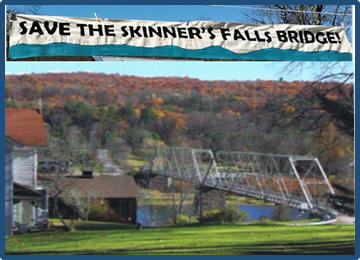Wyoming Neighbors of Leaking Chesapeake Well Evacuate
April 26, 2012Hydrogeologists say, Ban Hydraulic Fracturing in New York State and the Delaware River Basin
April 30, 2012The U.S. EPA Official who Oversaw the George W. Bush Administration’s 2004 Study of Hydraulic Fracturing says its Conclusions about Safety have been Exaggerated for Years.
By MIKE SORAGHAN of Greenwire, May 20, 2011
The U.S. EPA official who oversaw the George W. Bush administration’s 2004 study of hydraulic fracturing says its conclusions about safety have been exaggerated for years.
The study found that in certain circumstances, fracturing presented “little or no threat” to drinking water. But Ben Grumbles, who ran EPA’s Office of Water, says the study didn’t deem all “fracking” to be safe, and it didn’t justify exempting all forms of it from drinking water protections.
“EPA, however never intended for the report to be interpreted as a perpetual clean bill of health for fracking or to justify a broad statutory exemption from any future regulation under the Safe Drinking Water Act,” Grumbles wrote in an article (pdf) this week for the nonprofit he now runs, the Clean Water America Alliance.
The former assistant EPA administrator also says that after five years and a nationwide surge in drilling, it might be time to take another look at the exemption, which was included in a 2005 energy bill.
“A lot has happened since 2005 and, in my view, it makes sense to review the Safe Drinking Water Act landscape as well as the relevance of Clean Water Act programs,” he said.
The surge in drilling made possible by advances in fracturing technology is in shale gas, he said, “which is different from fracking for coal bed methane, the primary subject of EPA’s 2004 report.”
Grumbles was assistant administrator at EPA from January 2004 until January 2009, when President Bush left office. Before that, he was deputy assistant administrator and acting assistant administrator.
Grumbles became president of the alliance, which includes water utilities and companies that work with them, earlier this year after having served for two years as director of the Arizona Department of Environmental Quality.
His column — “Drill, Maybe, Drill” — was posted on the alliance website. But Grumbles stressed that the organization doesn’t have a position on fracturing.
“‘Drill, maybe, drill’ means more review along a more thoughtful path, one that can include fracking, even in large amounts, but in the right place, at the right time, with the right amount of government oversight,” he wrote.
It’s not the first time that Grumbles expressed reservations about the broad exemption. In September 2003, while at EPA, he told The Denver Post the agency should retain some of the control Republicans in Congress were preparing to strip away.
“The members might want to consider a situation that if there were instances of endangerment on a case-by-case basis, we could step in,” Grumbles said.
An industry spokesman said Grumbles’ remarks simply show that EPA tries to expand regulation whether it’s run by a Democratic or Republican administration.
“If the story here is that EPA didn’t like that decision, that it wasn’t supportive of Congress clearly delineating where its authority ended and the states’ authority began, then here’s another story for you: The sun rose today,” said Chris Tucker, spokesman for Energy in Depth, which was created by the Independent Petroleum Association of America to fend off federal regulation of fracturing.
‘Little or no threat’
The previous study began in 2000 and concluded with a report in 2004. The report said fracturing may release potentially hazardous chemicals into sources of drinking water but said there was no reason to study it further.
It found that fracturing posed “little or no threat” because the water is sucked back up out of the ground and the hazardous chemicals would likely be diluted or biodegrade on their own.
The study bolstered the case of gas producers, which asked Congress for a specific exemption from the Underground Injection Control provisions of the Safe Drinking Water Act for fracturing and received it in the 2005 Energy Policy Act.
The exemption has become known as the “Halliburton loophole.” Halliburton Co. had lobbied for the exemption while Dick Cheney ran the company. As vice president, Cheney touted it in the energy plan he shepherded for the Bush administration.
But the study has been criticized, most prominently by Denver-based EPA environmental engineer Weston Wilson, who wrote to Congress that the study’s findings were “unsupportable,” prominently citing the alleged conflicts of interest of five of the seven peer reviewers. One was an employee of Halliburton.
A year ago, EPA announced a new study of fracturing. Preliminary results from the $12 million research are expected next year, with a final report in 2014 (E&ENews PM,, May 11).
EPA officials have said they plan to take a “life cycle” approach to the fracturing study, an approach promoted by environmentalists but opposed by industry. They also say they will study drilling issues that don’t involve the specific technique of fracturing, such as shoddy well construction allowing gas to leak into aquifers.
Gas drillers have complained that EPA shouldn’t examine parts of the drilling process that don’t directly involve fracturing.
EPA is also planning to do case studies of places where critics reported problems with fracturing during “scoping hearings” last summer. The case studies could involve field sampling, modeling and parallel laboratory investigations to determine the potential relationship between complaints and fracturing.
That is broader than the 2004 fracturing study, which relied on a survey of state officials to determine what problems had occurred during fracturing operations rather than EPA testing of drinking water.



